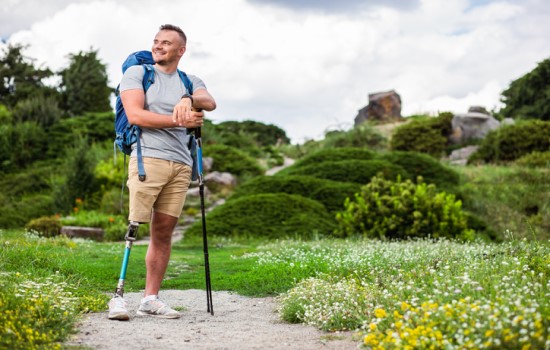Ready to quit? Here’s some tips and tricks to help you
At the beginning of a new year many of us make resolutions about getting healthier or changing some aspect of our lives. For some people, when the calendar changes, is a great time to quit smoking. But that’s not always easy. So how can you best prepare yourself to successfully quit smoking? Read on for some tips and tricks to give cigarettes the flick.
Find your motivation to quit smoking
The reasons why we smoke are often complex. The three most common reasons are a physical addition to nicotine, emotional triggers—when you’re feeling stressed, bored or upset or even when you’re happy—and situational triggers—when you’re with certain people or in certain situations. Many people smoke because of a combination of these.
That means it can be difficult to kick the habit. So, it’s important to find your motivation. What’s your reason for quitting? Maybe you want to protect your family or yourself. Maybe you want to feel healthier or get fitter. Whatever the reason, it’s important to be clear about what your motivation.
Tip: choose a strong reason to quit, something that will help you fight the urge to light up.
Prepare, prepare, prepare
Some people can easily go cold turkey. Throwing their cigarettes in the bin and never taking the habit up again. For others, it can be a little more complicated. That’s why it’s important to prepare. Make sure you have plenty of supports in place before you quit. Talk with your doctor about things that might help. Consider classes and apps, counselling and hypnosis. Contact Quitline in your state for access to more resources and supports. Preparation can help you ensure that when you’re ready to quit, you do so safely and effectively.
Tip: Nicotine replacement therapies like nicotine gum, lozenges and patches can improve your chances of successfully quitting.

Gather your supports
Quitting in isolation can be tough. So be sure to let your friends and family and colleagues know that you’re quitting. They can offer your moral support and help you to avoid triggers and temptations. While support from loved ones is helpful, don’t forget to five yourself a break. Many people smoke as a response to stress or to help them unwind. If that’s you, after you quit you’re going to need new strategies to relax. Try exercise, take up a new hobby, spend time with friends to treat yourself to a massage. And do your best to avoid stressful environments or situations in the few weeks after quitting. Avoid triggers like alcohol or coffee.
Tip: At this early stage, you don’t want to see or smell anything that might remind you of smoking. So, get rid of all your ashtrays and lighters. And wash carpets, drapes and upholstery to get rid of scent of cigarettes. And if you smoked in your car, give it a thorough clean out too.

Get active
Getting active can help you to tame those pesky nicotine cravings. When you feel like having a cigarette, get outside and go for a run or head to the gym. Even taking the dog for a walk or getting out into the garden can help. Not only will getting active help you to control your cravings, it’ll also help you to get fitter and healthier.
Tip: Smoking is often a habit, so a good strategy to help you quit is to change your habits. Try a new café or something new for dinner. Create new smoke free memories and habits.
If at first you don’t succeed, try and try again
According to Quitline, people can try to quit up to 30 times before they’re successful. So, if you find yourself having a cigarette after you’ve vowed to quit, don’t be deterred. Instead, use it as an opportunity to finetune your quitting strategy. Maybe there was a trigger you hadn’t thought about, or something that distracted you from your goal. Whatever it was, dust yourself off and try again. Because every time you quit you’ll get better at it until you finally kick the habit for good.
Tip: If you do relapse, but you’re keen to try again, set yourself a new quit goal within the next month.
For more information and resources in quitting, visit Quitline or call 13 78 48.
Please note the information supplied is general in nature. Please consult your medical practitioner for individual advice.
